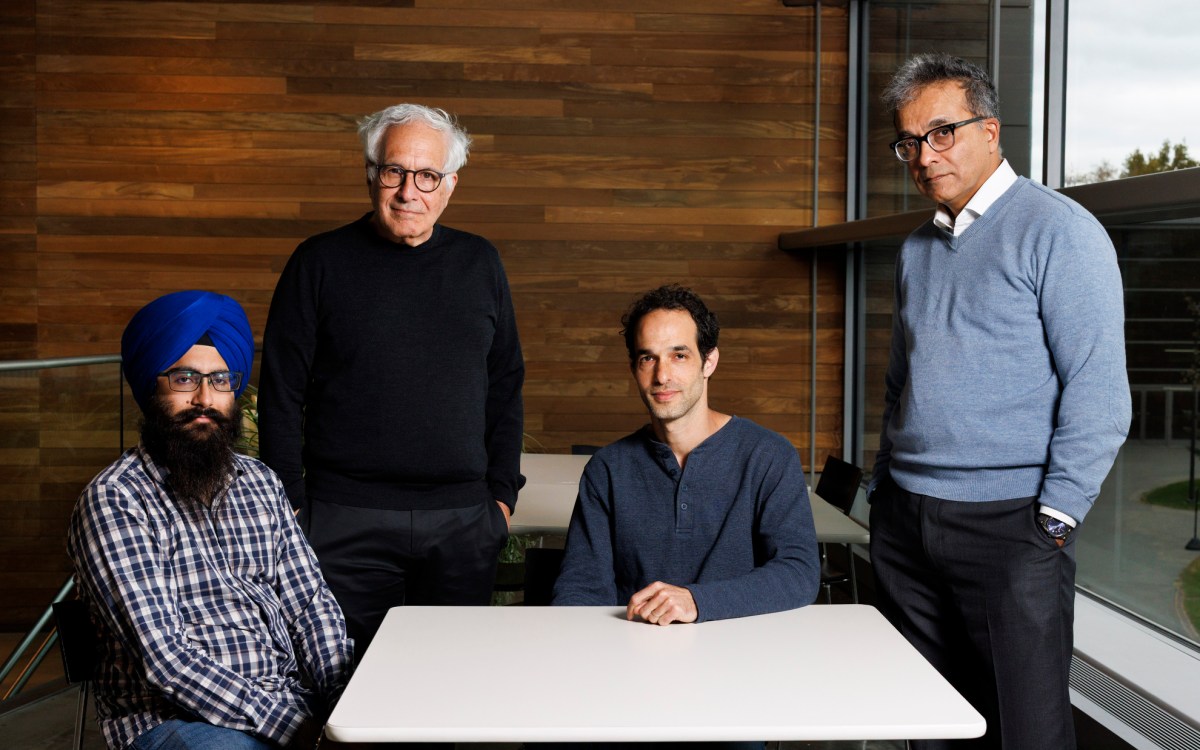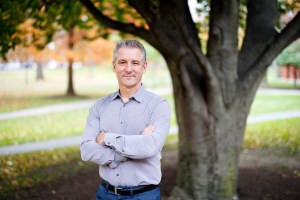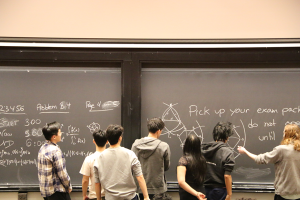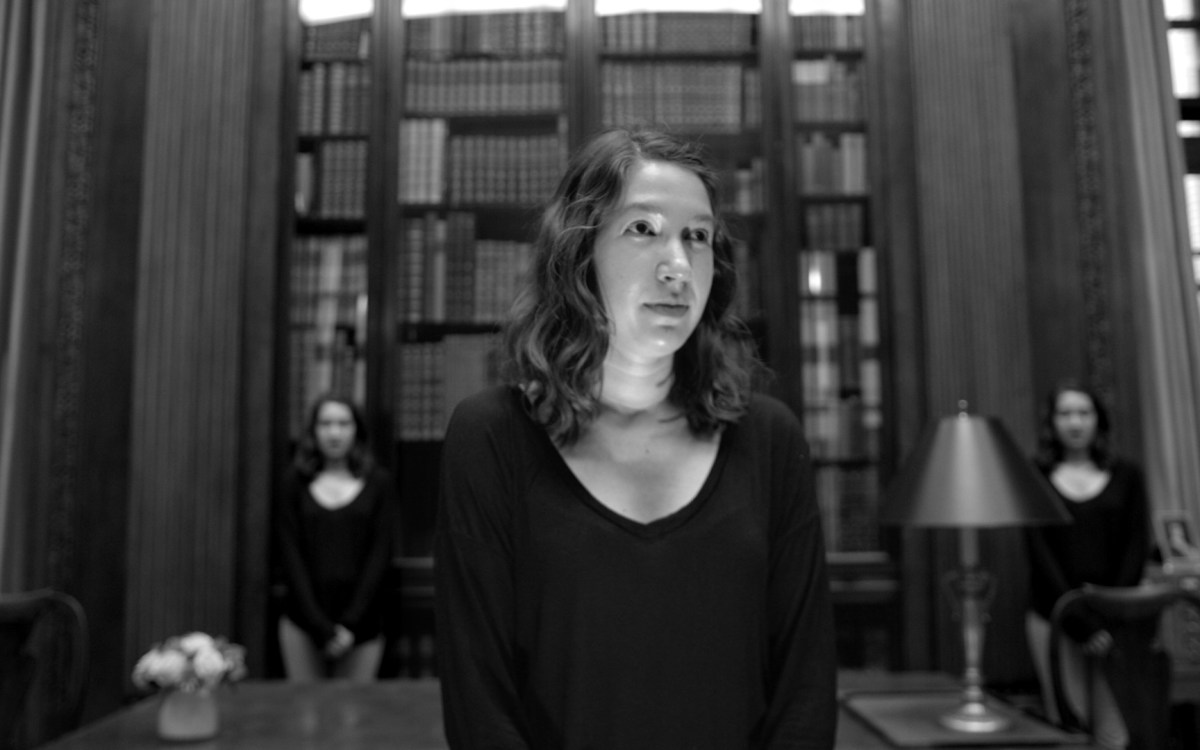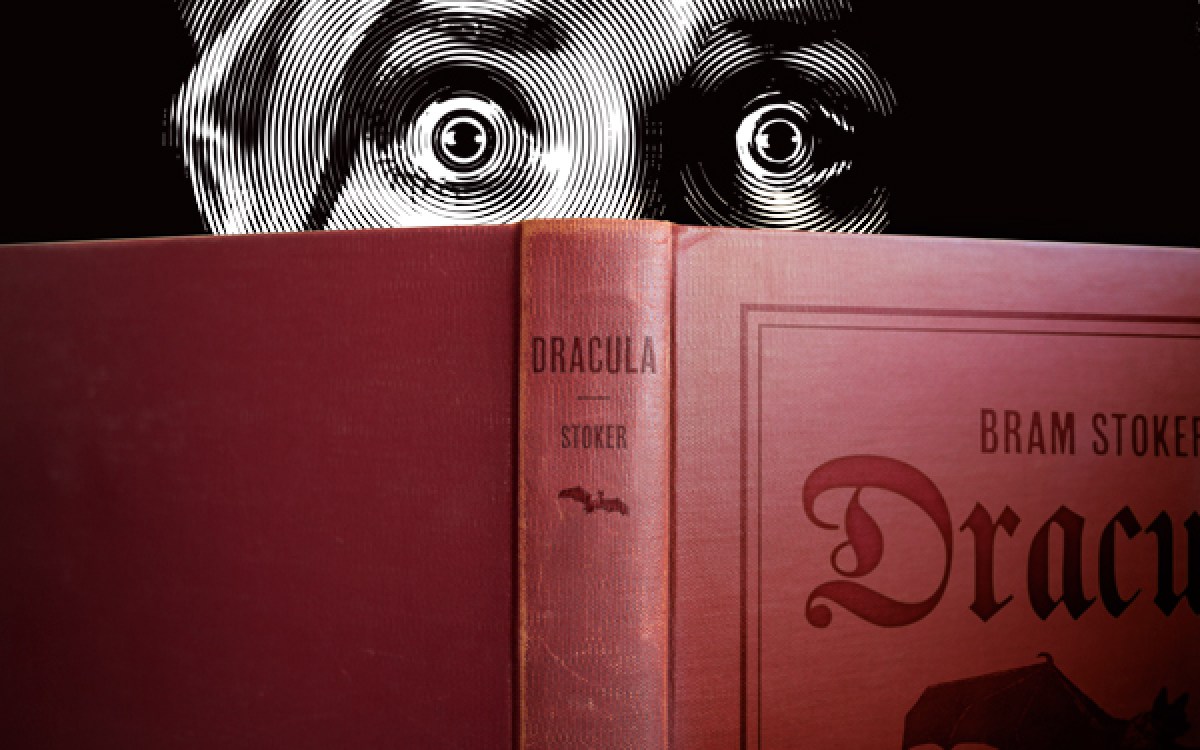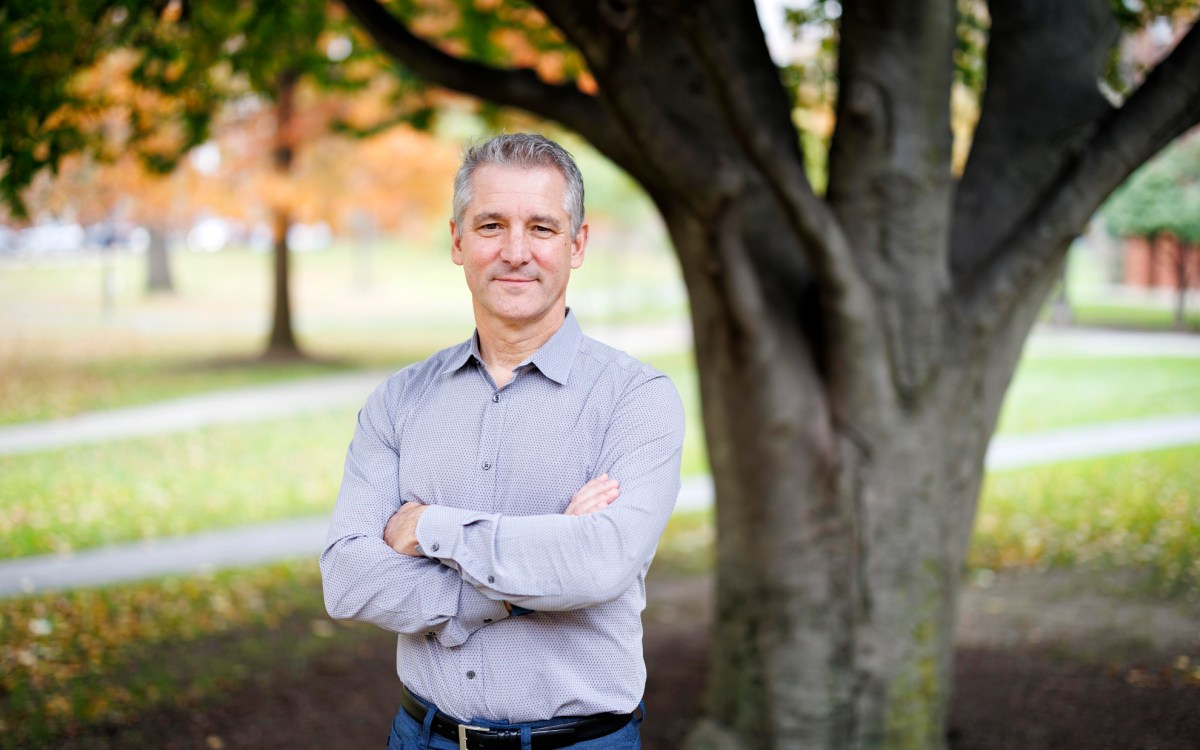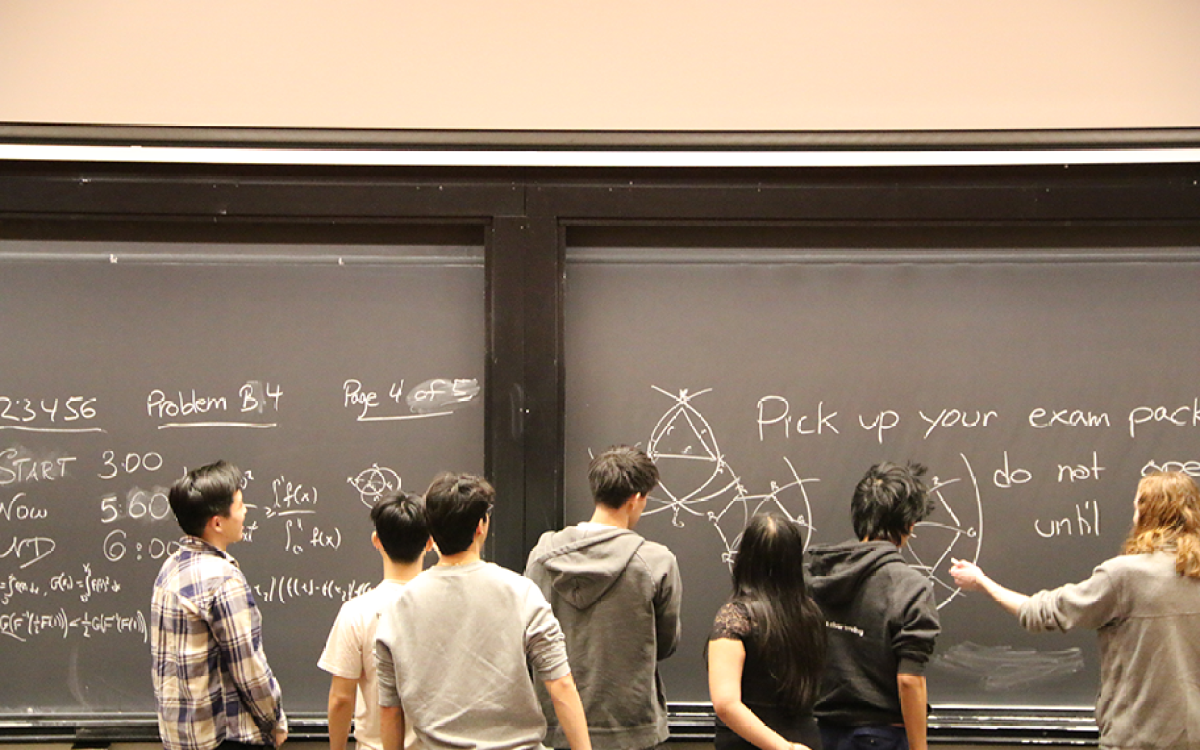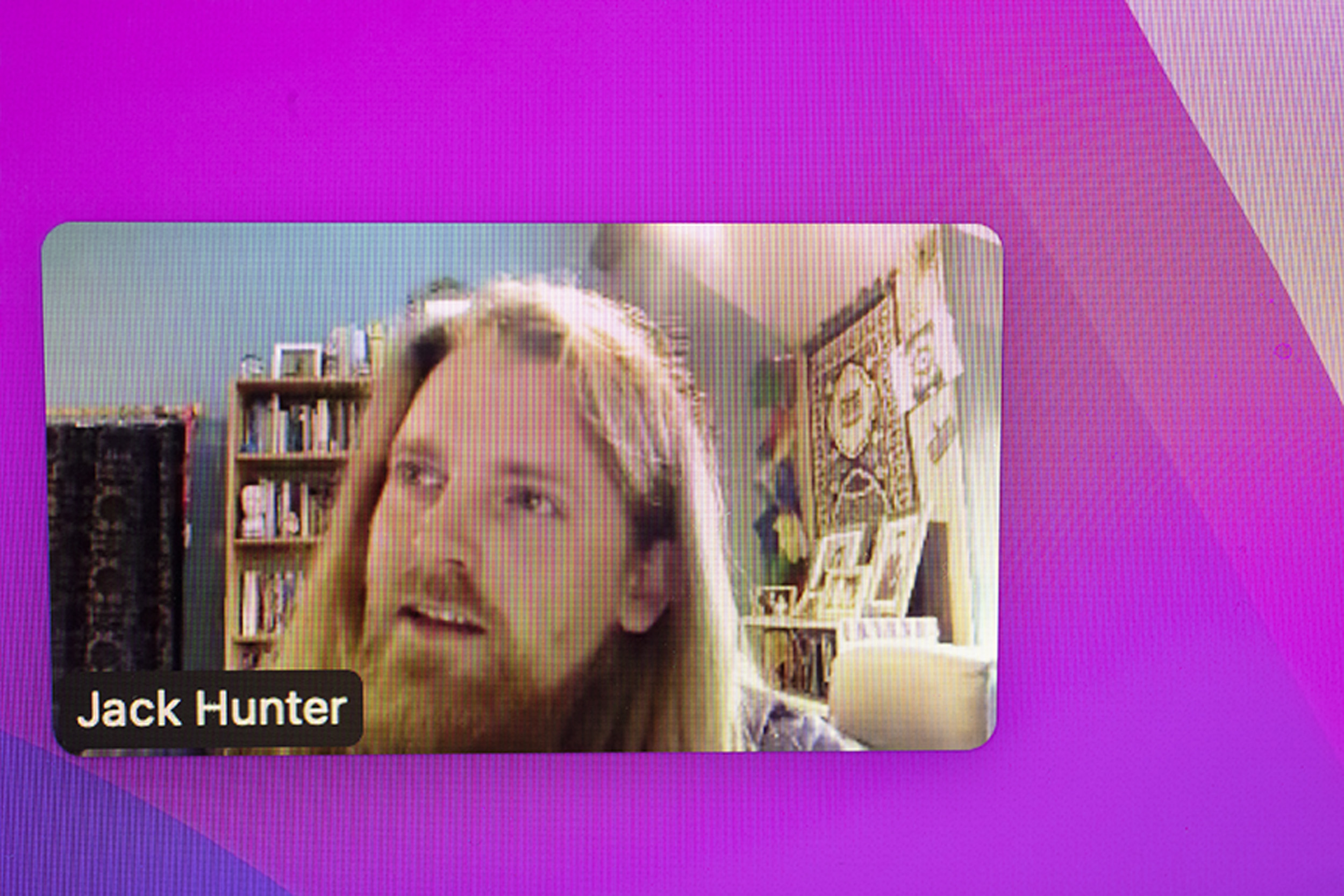
Studying the paranormal can contribute to the field of anthropology, says Jack Hunter in a recent Harvard talk.
Rose Lincoln/Harvard Staff Photographer
Anthropologist describes supernatural adventures
Field is well-positioned to investigate the paranormal, he says
How can anthropologists take the paranormal seriously? It’s a question Jack Hunter has explored for years and one he addressed in a virtual Harvard talk on Tuesday.
The Welsh author and anthropologist, who studies consciousness, religion, ecology, and the paranormal, discussed his academic work and his own supernatural experiences with Giovanna Parmigiani, a lecturer on religion and cultural anthropology at the Divinity School and a scholar of contemporary paganisms. The conversation was sponsored by the Transcendence and Transformation initiative of the Center for the Study of World Religion.
Researchers who study the paranormal have long been eager to bring their work out of the domain of mysticism and religion and into the domain of the natural, said Hunter. By using the term “supernormal,” he said, early investigators were acknowledging that while the topic may not be typical, “it’s a normal part of the processes that go on in the world.”
Hunter’s own interest in the supernatural developed early on. Though raised to be a religious skeptic, he was always interested in miracles, saints, and relics, he said, and later had “some extraordinary experiences of my own.”
As a college student he became intrigued with what happens when you “treat these experiences seriously.” He found his answer while researching the Bristol Spirit Lodge, a center in Bristol, England, for the development of mediumship. During his first séance, he saw “this green mask appear over the face of the medium, and kind of slide down and just sort of dissipate.” Convinced he was hallucinating, Hunter said nothing. Later he was shocked when someone else mentioned the same green mask.
In a separate séance, he felt his hand “being pushed up by a balloon of air.”
“My left hand started to literally move around; it was almost as if it was waving. And I was in a strange state of mind, where I realized that, you know, I’m not consciously willing this to move — I don’t know what it means. It really freaked me out.”
What Hunter calls his “hand-possession experience,” convinced him that there is, at the very least, “an experiential origin to the belief in mediumship.”
“If you take that experience seriously in itself,” he added “then you have to take the other implications that go along with that as well, which may be that our standard models are limited, or they don’t cover everything that happens in the world.”
Hunter addressed the question of fakery among mediums, acknowledging the performative element of the practice. But being able to detect trickery in a séance, he said, “doesn’t mean that everything else is fake.”
On the question of how to study the paranormal anthropologically, Hunter said that his field has an advantage over others thanks to its emphasis on context.
“That’s what we need to understand these kinds of complex experiences,” he said. “The moment that we start to try to break them down and put them into a laboratory condition, remove them from the emotional, lived-world experience that they take place in naturally, then we’re kind of steering ourselves away from understanding them.”
Anthropologists, he added, engage with phenomena in ways sociologists or psychologists might avoid. “We’re encouraged to actually participate in rituals,” he said, “in order to understand them.”
